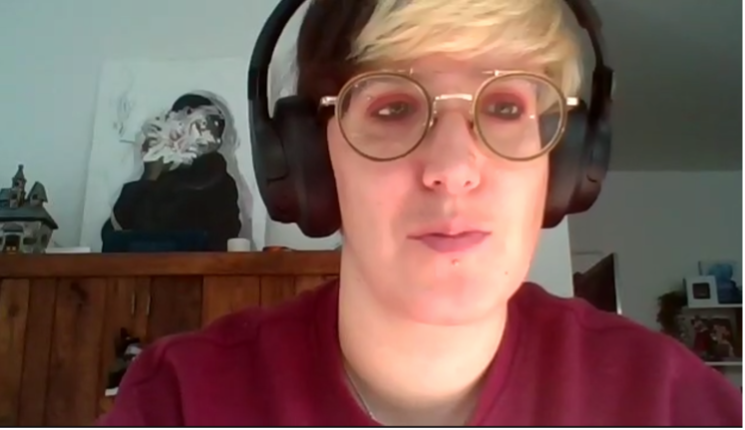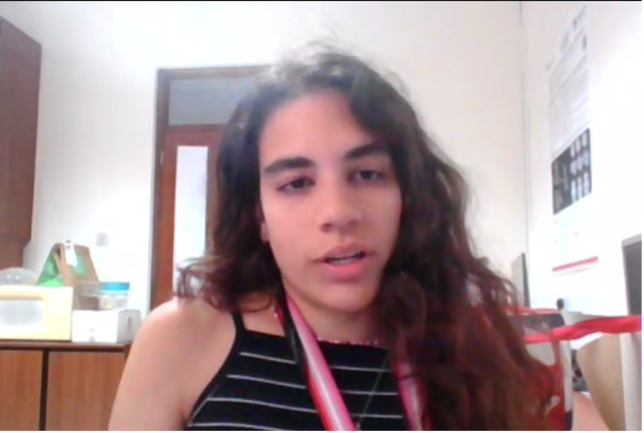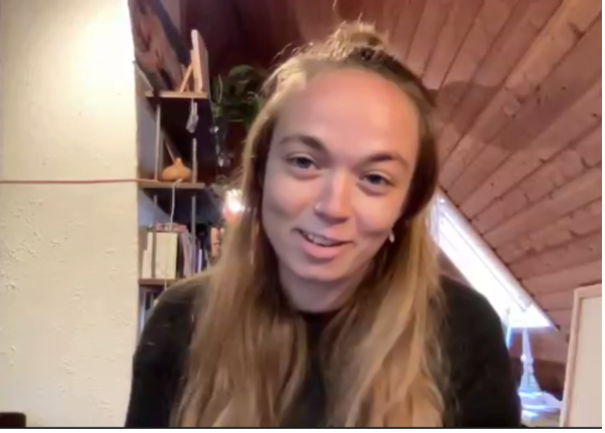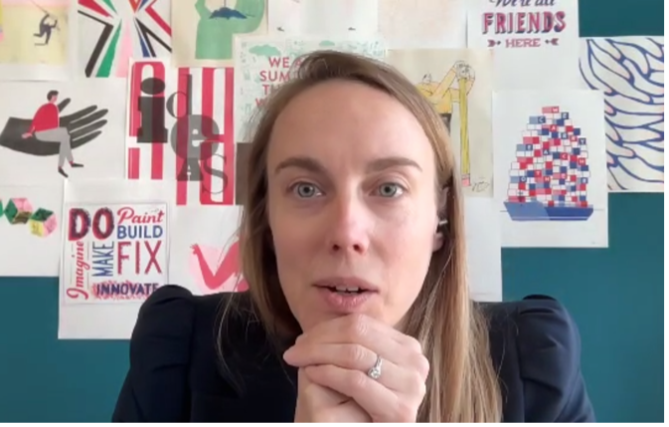On 7 October 2022, ahead of World Mental Health Day and in the framework of the European Year of Youth, we organised an event to discussed and learn how social media impact mental health, especially for young people.
Dominique de Marnée, Former Member of EDF’s Youth Committee, Mental Health Europe’s Senior Policy Advisor for Youth and CEO of Mental Health Crowd moderated this session which included a broad representation of young people and the digital and mental health fields who gave first-hand experiences of the positive and negative side of social media.

After the brief introduction Kamil Goungor, Former Member of EDF’s Youth Committee and Policy and Movement Support Officer at the European Network on Independent Living (ENIL) explained the context of mental health in the disability agenda and the reasons why the EDF Youth Committee is committed to mental health this year. He highlighted that the Youth Committee “identified a need to discuss more than ever the issue of mental health of young disabled people”. In particular, Kamil spoke about the European Year of Youth 2022 established by the European Commission.

After the opening remarks, it was the turn of the panellists. The first to intervene was Lysiane Pons, Media and Communication Lead as well as the Deputy Director of Euro Youth Mental Health.
She shared that was her terrible experience of having suffered from high-functioning depression and anxiety that brought her to Euro Youth Mental Health to leverage her skills to improve the way we communicate about mental health and its visibility.

Social media helped Lysiane to connect with people and to begin feeling less isolated. “You don’t necessarily have the tools to be able to handle feelings so this kind of peer online support has been something that for me changed my mental health experience.”
She then explained the work that Euro Youth Mental Health is doing helping young people and supporting their mental well-being. This organization is raising the voice of young people and building community support from all across Europe. “You might feel isolated in your local area but there may be someone across Europe that might get what you mean. That is the goal of Euro Youth Mental Health. To raise people’s voices and to make them feel like they have a platform and a place to go to”.
Antonella Bugeja, a self-advocate from Malta criticised the way social media is romanticising mental illnesses. However, she also highlighted the positive side by highlighting the many accounts that are helping many young activists sharing not only the good parts but also the bad parts of life.

She also highlighted a very important issue when it comes to the impact of social media. How these tools affect body image. She spoke about 2 constricting inputs: “On the one hand, we are constantly seeing our imperfection from our bodies. On the other hand, we are getting information from social media about perfectly edited bodies. These can cause a lot of pressure to reach an ideal that does not exist”
Lucia Kleekmamm, Mental Health Crowd shared her experience with post-traumatic stress disorder and the way she relied on social media as a complementary tool: “social media can be such a good source for people that feel alone and feel not seen or not understood”.
She also highlighted the power of social media to educate a lot of people at the same time and to communicate important and invisible topics.

The last guest who took the floor was Stacy Featherstone, Stakeholder Engagement, EU Affairs at Meta. She explained the steps that Meta is carrying out to care for the well-being of its users, especially how to help young people to have healthy online relations with their platforms. One of the keys that Meta is doing is to get closer to the younger generations and partner with them so they can identify issues and learn from their experiences.
Acknowledging that there are still things to be completed Stacy, talked about the company’s belief that a more open and connected world can have a positive impact. Meta platforms stated: “provides access to a larger community where everyone can find similar lived experiences. It can also provide access to job opportunities and professional development. It’s a channel that is helping also to mobilise and to raise awareness about important causes”.

Stacy touched briefly the support that Meta is doing to provide to the disabled community. According to Stacy the Meta Accessibility team is working to create a more inclusive experience for as many people as possible. Building features in technology to help people who have disabilities to get the most of their products is one of their priorities she shared. From technical improvements to their platforms such as alternative text descriptions for stickers, auto generated captions in videos or inclusive avatars to develop safety guides for young people with intellectual disabilities and inclusion policies.
Meta is putting in place measures she said because “we consider that different people perceive and encounter different barriers and constraints when using technology and we are trying to think as holistically as possibly”.
Tips to take care of your mental health when using social media
After the panellists addressed the audience, a round was opened where each of them shared their tips on how to take care of mental health so that social media can become a favourable tool.
Please if you want to share yours please send them to Loredana Dicsi, Membership, Internal Communication and Youth Officer (Loredana.dicsi@edf-feph.org).
Lysiane Pons, Media and Communication Lead as well as the Deputy Director of Euro Youth Mental Health.
- Guarantee your safety as you do in the outside world
- Choose your online “battles”: what is just not worth discussing and just letting it go.
- Rely on those accounts that make you feel good about yourself and engage with them.
- Boundaries are very important: avoid or block content. Be mindful of your own limits.
Antonella Bugeja, a self-advocate from Malta
- Change your mentality and be in control of your mind. Focused on “why is this content making me sad?”
- Follow pages that are healthy for you that give correct information on different things
- Pick your online “detox” days and reduce your screen time: social media can create addiction problems.
- Use online support groups and follow post with good like self-care tips
Lucia Kleekmamm, Mental Health Crowd
- Do therapy if you are not feeling good. Therapy is a good thing to do
- Learn not to take social media too seriously
- Unfollow pages that don’t make me feel good.
- Don’t use my phone when I’m talking to other people and try to connect with them
Dominique de Marnée, Former Member of EDF’s Youth Committee, Mental Health Europe’s Senior Policy Advisor for Youth and CEO of Mental Health Crowd.
- Take back control of your social media. You decide the time you spend in the online world.
- Compare to grow. Don´t compare yourself on social media to feel bad
- Go on social media not to get likes. Go on social media to give something to the community
- Social media it’s an opportunity to give visibility to a lot of topics that remain invisible. Use hashtags to identify them.
Dominique concluded the event by thanking all the participants a saying that the solution is “not to demonised all technology and social media and just try to shield them completely from it, it has to be a healthy approach about it“.
Related links and resources
- Meta family centre
- Pressure to be perfect
- Get Digital
- Youth Safety Education Campaign
- Bullying Prevention Hub
- Tools on managing time on Facebook and Instagram
- Parent and career guides (different languages and localised) to Instagram
- Meta Accessibility Summit 2022